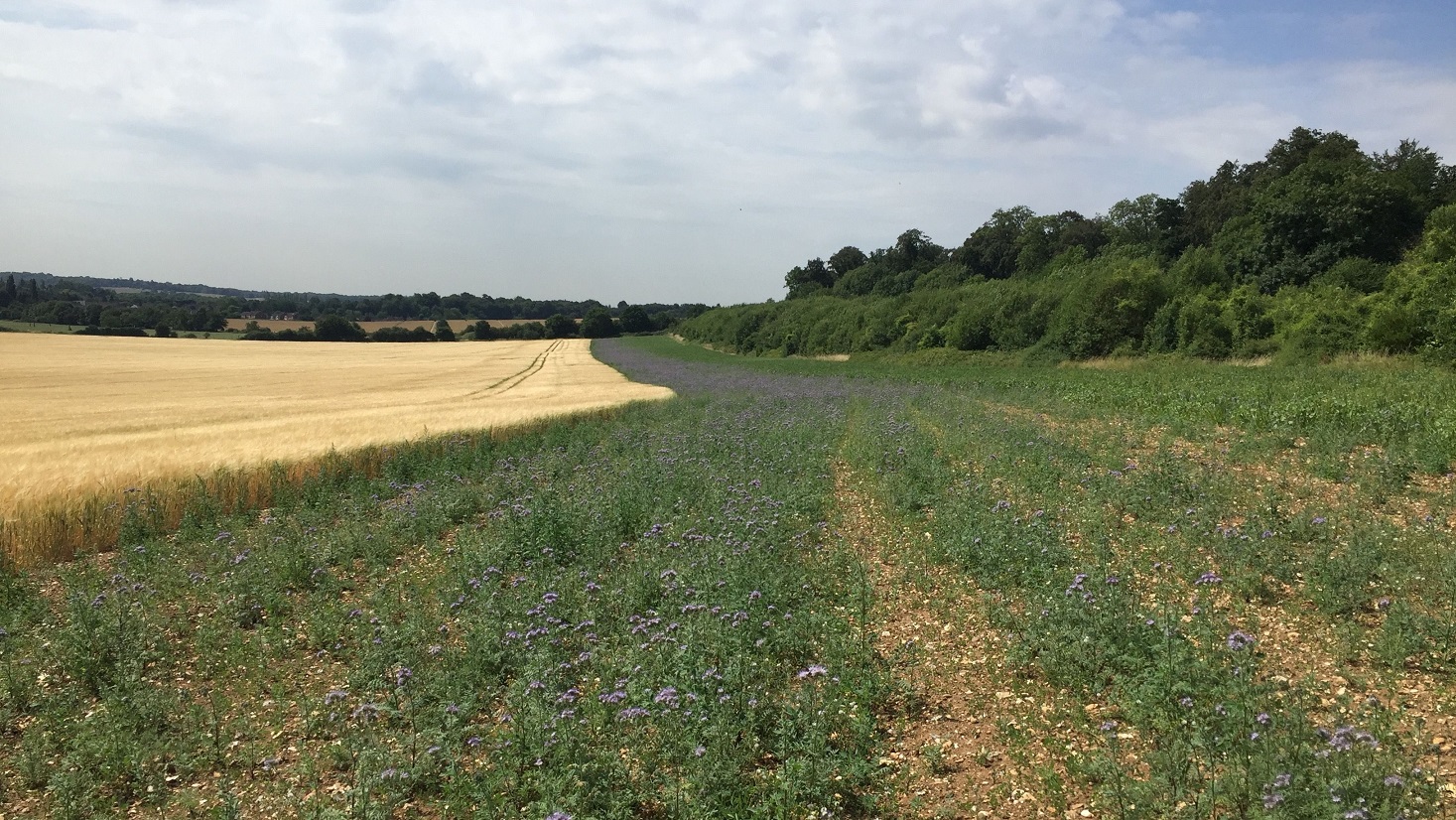
With the prolonged Brexit debate now concluded, the UK’s rural legislative and policy vacuum has also ended with the introduction of a flurry of government bills relating to farming and the countryside. Since January, the government has published Agriculture and Environment Bills, the Direct Payments to Farmers (Legislative Continuity (2019-20)) Bill, the Clean Air (Human rights) Bill and the Green Belt Protection Bill.
The government has also launched a National Food Strategy, the first for 75 years, and most recently a consultation on the initial proposals for designing an environmental land management scheme (ELMS). The future policy direction now promises to be very different to anything we have previously experienced and arguably represents the greatest change in agricultural and rural policy since 1947. Furthermore, the COVID-19 pandemic has highlighted the fragility of the UK food system and supply chains. One of the key public policy challenges of the post-pandemic period will be to better balance food security and environmental management concerns.
The Agriculture Bill, which at the time of writing has passed its third reading in the House of Commons, will come into force as the Agriculture Act two months after the bill receives royal assent. In Part 1 the bill provides the legislative framework for replacement agriculture support schemes when the UK is no longer part of the Common Agricultural Policy. Part 2 gives power to support agricultural markets and measures to improve the transparency and fairness in the supply chain.
Part 3 and Part 4 of the bill introduce various measures concerning farming and the countryside, including on agricultural tenancies, fertiliser regulation, identification and traceability of animals and the red meat levy. Part 5 introduces new standards of production – including organic products. Part 6 includes provisions to enable the UK to meet obligations under the World Trade Organisation rules. Part 7 relates to the legislative provisions in the devolved countries.
There was widespread disappointment among many farming and environmental organisations that, in the third reading on 13 May 2020, MPs rejected an amendment that would have ensured any agricultural or food product imported into the UK under new trade agreements would be produced to the equivalent UK standard. There will, no doubt, be interesting debates around this as the bill moves to the House of Lords.
The provisions on farm support mainly apply to England with some powers extended to Northern Ireland. Some provisions apply to Wales, but these will be temporary as ministers in the Welsh parliament intend to introduce a Wales (Agriculture) Bill this Assembly. The Scottish government introduced legislation in November 2019 to deal with farm support matters. Other provisions relate to all four nations with some exceptions in Part 4 of the bill.
Measures in the bill include a requirement for ministers to encourage the production of food in the UK in an environmentally sustainable way; a requirement to set out multi-annual plans about financial assistance – starting in 2021 – and a report on food security at least once every five years.
| 2020: Direct payments continue. Money paid in direct payments will be allocated in 'much the same way' as now. |
| 2021-27: Direct payments in England will be phased out starting from 2021 when the first progressive reductions apply. Delinking may apply from 2022 at the earliest. (Direct payments cannot continue if delinking is introduced.) |
| 2028 and beyond: No direct payments. |
Farm support timescales for change
| 2020: Direct payments continue. Money paid in direct payments will be allocated in 'much the same way' as now. |
| 2021-27: Direct payments in England will be phased out starting from 2021 when the first progressive reductions apply. Delinking may apply from 2022 at the earliest. (Direct payments cannot continue if delinking is introduced.) |
| 2028 and beyond: No direct payments. |
Source: Health and Harmony: The Future for Food, Farming and the Environment in a Green Brexit – Policy Statement, September 2018
Public money for public goods
Part 1 of the bill provides a range of provisions to allow the secretary of state to establish a new agricultural/rural support scheme based on the principle of public money for public goods. The clauses provide enabling powers for ministers to pay farmers and land managers for these goods and phase out the current system of direct payments.
- enhancing the environment
- protecting the countryside better
- improved welfare of animals, plant health and greater productivity.
Other highly relevant parts of the bill are chapters 2 and 3 that outline how direct payments and other support will be phased out after the UK’s EU exit.
To start the process of devising the new support scheme, the Department for Food, Environment & Rural Affairs (DEFRA) has issued a document to encourage engagement with stakeholders entitled Environmental Land Management: policy discussion. There are presently 42 ELMS tests and trials being carried out around the country to test how elements of the new scheme will work ahead of a national pilot. ELMS is due to start in late 2024. DEFRA’s current thinking is that ELMS will be split into three distinct spheres rather than one broad scheme to tailor each tier to the needs of particular groups of land managers, landscapes and land types.
The first tier would be to incentivise environmentally sustainable farming and forestry by, for example, using cover crops, planting wildflower margins and leaving uncultivated areas as wildlife refuges. The second tier would provide support for locally targeted environmental outcomes. This tier is likely to require more collaboration between land managers to ensure that the right things are delivered in the right places in a more joined-up way than before. The final tier would deliver landscape-scale land-use change where such projects provide added environmental value over and above tiers 1 and 2, for instance large-scale peat restoration and creation of coastal habitats such as wetlands.

RICS Countryside Policy Panel response
The government has recognised that access to professional advice for farmers and others is going to be crucial to the success and positive outcomes of the new support schemes and advisers will be key in providing sound professional advice and, for instance, facilitating local collaboration among those responsible for the management of land. There is an obvious opportunity for rural chartered surveyors in an advisory role, and RICS Countryside Policy Panel’s response to the Agriculture Bill draws attention to the professional training and standards of RICS members and their important role in land management across the country.
The government is placing importance on ensuring that there is an increased local involvement in the development of targeting and planning for ELMS in an area. RICS’ response to government on the Agriculture Bill recommends the development of a national land-use policy linked to the emerging food strategy to ensure the right use is on the right land at the right time. The Royal Society for the encouragement of Arts, Manufactures and Commerce (RSA) last year published Our Future in the Land, setting out the results of its two-year Food, Farming and Countryside Commission. It also recognised a need for a national land-use strategy. Linked to this, RICS has also called for a review of the Agricultural Land Classification system, which could be widened to include other capabilities of land such as biodiversity and carbon sequestration.
- To replace the demand for arbitration in the case of disputes over rent with a notice of determination. This will allow the parties to agree the appointment of a third party to resolve a dispute at any time before the rent review date.
- Other professional authorities, defined as the Central Association of Agricultural Valuers and Agricultural Law Association, can also appoint arbitrators in addition to RICS. However, any changes developed through legislation will be in consultation with the sector. RICS has provided a detailed response to this change and will consult further when regulation is published on this clause and others set out in the bill.
- Protecting tenants so they are not charged rent for landlord’s improvements while its cost is being paid off by them.
- Provision for dispute resolution; for example, a tenant entry into new ELMS requires landlord’s consent.
- The rule that prevents tenants under 65 serving a retirement notice is repealed.
- In respect of council smallholdings, the strict requirement for tenants to retire at 65 is repealed to pensionable age.
- The commercial unit test is repealed, and the suitability test is expanded to reflect a tenant’s likely capacity to farm the holding to a high standard of efficient production and care for the environment.
RICS Countryside Policy Panel called for proper scrutiny and consultation on future draft regulations to enable the views of RICS and others involved in land management in the countryside to be heard.
"There is an obvious opportunity for rural chartered surveyors in an advisory role"
